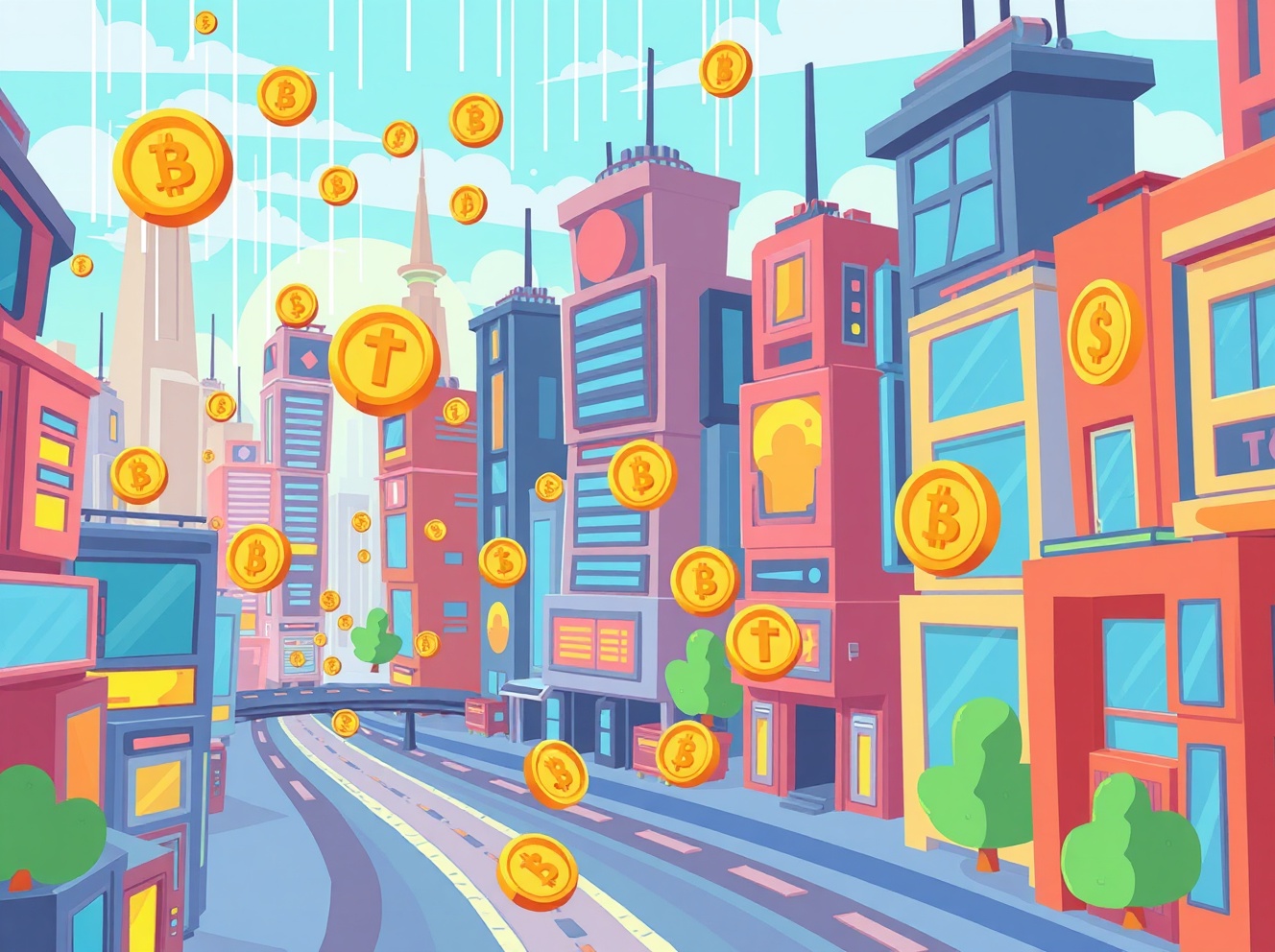Revealing: IMF Exposes How Tokenized Markets Create Efficiency But Risk Devastating Crashes
0
0

BitcoinWorld

Revealing: IMF Exposes How Tokenized Markets Create Efficiency But Risk Devastating Crashes
Have you ever wondered why tokenized markets are transforming finance while simultaneously facing serious stability concerns? The International Monetary Fund just dropped a bombshell analysis that reveals both the incredible potential and frightening vulnerabilities of these digital markets. Their recent findings show tokenized markets are revolutionizing how we handle transactions, but they also carry hidden dangers that could lead to massive market collapses.
What Makes Tokenized Markets So Efficient?
The IMF highlights that tokenized markets create unprecedented efficiency in financial systems. These digital platforms make transactions lightning-fast and significantly cheaper than traditional methods. Imagine completing complex financial operations in seconds instead of days. That’s the power tokenized markets bring to the global economy.
However, this efficiency comes with a price. The very technology that makes tokenized markets so effective also introduces new risks that could trigger widespread financial instability.
Why Are Tokenized Markets Vulnerable to Crashes?
The IMF identifies several critical vulnerabilities in tokenized markets that could lead to sudden collapses. Smart contracts, while innovative, create complex interdependencies that can amplify shocks across the entire system. When one component fails, it can trigger a domino effect that spreads rapidly through connected platforms.
Key risk factors include:
- Systemic shocks from smart contract interactions
- Platform fragmentation creating isolated failures
- Liquidity evaporation during stress periods
- Regulatory gaps in emerging technologies
How Could Government Intervention Shape Tokenized Markets?
The IMF emphasizes that governments have always played crucial roles in monetary evolution. This historical pattern suggests future government intervention in tokenized markets is almost inevitable. Regulatory frameworks will likely emerge to address the unique challenges these markets present.
Such intervention could take various forms:
- Standardization of smart contract protocols
- Cross-platform interoperability requirements
- Emergency liquidity mechanisms
- Consumer protection measures
What Does the Future Hold for Tokenized Markets?
The development of tokenized markets represents a pivotal moment in financial history. While they offer tremendous benefits in efficiency and accessibility, their vulnerability to crashes requires careful management. The IMF’s warning serves as a crucial reminder that innovation must be balanced with stability.
Moving forward, successful tokenized markets will likely incorporate:
- Robust risk management systems
- Transparent operational frameworks
- Collaborative regulatory approaches
- Continuous security improvements
Frequently Asked Questions
What are tokenized markets?
Tokenized markets are digital platforms where assets are represented as tokens on blockchain networks, enabling faster and cheaper transactions than traditional financial systems.
Why does the IMF consider tokenized markets efficient?
The IMF recognizes that tokenized markets reduce transaction costs, increase speed, and improve accessibility compared to conventional financial markets.
What causes vulnerability in tokenized markets?
Complex smart contract interactions, platform fragmentation, and lack of established regulatory frameworks create vulnerabilities that could lead to market crashes.
How likely is government intervention?
Very likely. Historical patterns show governments always intervene in monetary systems, and tokenized markets will likely face similar regulatory oversight.
Can tokenized market crashes be prevented?
While complete prevention may be impossible, proper risk management, regulatory frameworks, and technological safeguards can significantly reduce crash risks.
Are tokenized markets the future of finance?
They represent an important evolution, but successful integration requires addressing the vulnerabilities identified by the IMF and other financial authorities.
Found this analysis of tokenized markets insightful? Share this article with others interested in cryptocurrency trends and help spread awareness about both the opportunities and risks in digital finance.
To learn more about the latest cryptocurrency trends, explore our article on key developments shaping digital assets and their future market dynamics.
This post Revealing: IMF Exposes How Tokenized Markets Create Efficiency But Risk Devastating Crashes first appeared on BitcoinWorld.
0
0
 Manage all your crypto, NFT and DeFi from one place
Manage all your crypto, NFT and DeFi from one placeSecurely connect the portfolio you’re using to start.




